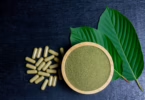For Immediate Release:
December 8, 2023
Contact: Mac Haddow
Senior Fellow on Public Policy
American Kratom Association
Phone: 571-294-5978
mhaddow@americankratom.org
The American Kratom Association Calls Out the FDA for
Gaslighting the Tampa Bay Times Investigative Team
Setting aside the sensationalized claims in the Tampa Bay Times article on kratom,
the adverse events and fatalities are laid at the doorstep of the FDA.
WASHINGTON, D.C., UNITED STATES, December 8, 2023 – The American Kratom Association
(AKA) advocacy work consistently relies on two specific principles: (1) Science should dictate the
public policy on kratom; and (2) the FDA should do its actual job and regulate the kratom
marketplace fairly.
The Tampa Bay Times has published the first in a planned series of articles on kratom, “Deadly
Dose”, that relied on the FDA’s claims that kratom is dangerous, and the investigative team at that
newspaper has fallen victim to the FDA’s decade long gaslighting of the public on the safety of
kratom. The FDA has made official pronouncements in government documents claiming kratom
is dangerous; has flooded the internet with anti-kratom claims; and has misled medical
examiners, law enforcement officials, addiction recovery center officials, elected officials, trial
attorneys, the media, and the public with a deliberately false stream of disinformation claiming
that kratom is dangerous.
“It started with the justification for the first import alert on kratom imposed by the FDA more
than a decade ago,” Mac Haddow, Senior Fellow on Public Policy with the AKA, explained. “The
FDA filed official documents to schedule kratom claiming kratom products posed an imminent
threat to the safety of the American public. The FDA’s disinformation campaign on kratom misled
respected heath websites like the Mayo Clinic, WebMD, and the Cleveland Clinic with claims that
kratom was killing people by itself.”
In a stunning disclosure in the United States District Court for the Southern District of California
where a Federal Judge ordered the FDA to testify under oath to justify their claims that kratom is
dangerous, the Department of Justice reported to the Judge that the FDA has refused to obey the
Order because “they [“FDA”] have not made a determination regarding whether kratom is
dangerous.” (see Case 3:23-cr-00179-TWR Filed 12/06/23 Page ID.1032 Exhibit 6; United States
of America, Plaintiff, v. Nine2Five, LLC (1) Sebastian Guthery (2), Defendants)
“The FDA has repeatedly stated for more than a decade a constant false narrative that kratom is
dangerous and when they are required to document that claim under oath in a Federal District
Court, they refuse because they admit they never could justify their claims kratom is dangerous,”
Haddow concluded. “The Tampa Bay Times makes the fair point that more regulation should be
put on kratom, it is the FDA who has failed to protect the American people from adulterated
kratom products that do cause adverse events and deaths. The FDA’s House of Cards on kratom
has collapsed and the gaslighting by the FDA on kratom has to stop now.” The American Kratom
Association supports Federal Kratom Consumer Protection Act legislation now under
consideration by Congress as a means to combat FDA inaction and misinformation.
WHERE THE AKA AND TAMPA BAY TIMES AGREE – AND WHERE WE DISAGREE
Where the Tampa Bay Times and the AKA Agree:
▪ The AKA advocates for evidence-based labeling that will inform consumers on the serving
sizes that are recommended, and we support product limitations on the ingredients that
should be on a label that informs consumers. Any product that is not labeled correctly, or
has no labeling instructions at all, should be banned from sale. That is a clear failure of the
FDA to not remove these products from the marketplace.
▪ Polydrug use and adulterated kratom products are causing serious adverse events and
deaths. The Tampa Bay Times correctly states there is no known toxicity level for kratom
itself.
▪ Mixing prescribed medications with kratom should be supervised by medical
professionals, and kratom consumers should tell their doctor about kratom use just as
they do with other dietary and botanical supplements. When the FDA identified a specific
interaction between a prescription medication and kratom, it should be a required
warning on the label. To date, the FDA has not provided a single advisory to any drug or
kratom manufacturer about known interactions.
▪ No kratom vendor should be permitted to make an illegal therapeutic claim, i.e., providing
“opiate withdrawal relief.” It is appropriate under federal law to make general marketing
statements about increasing energy or similar benefits. The FDA has failed to take any
enforcement actions against vendors who make these illegal therapeutic claims. The AKA
has submitted more than 85 documented complaints to the FDA on kratom vendors
making these illegal therapeutic claims over the past 3 years, and not a single prosecution
has resulted.
▪ Concentrated levels of kratom’s alkaloids or metabolites that use production methods not
approved by the FDA that synthetically enhance the power of these ingredients should be
banned. Synthesized 7-hydroxymitragyine to enhance the “power” of a user experience
should be banned from the market. Much like concentrated caffeine products – where the
FDA has taken enforcement action — kratom products manufacturing processes should
follow FDA similar concentration guidance, and the AKA advocates for such limits. More
importantly, the FDA should publish specific standards for manufacturing for kratom
products.
Where the Tampa Bay Times and the AKA Disagree:
▪ Using attention-grabbing headlines that are not supported by the actual data on kratom’s
role in reported deaths – like the Tampa Bay Times “Deadly Dose” – leads readers to the
false conclusion that evidence shows kratom causes deaths – when the evidence does not
show that. A headline like “Deadly Dose from Polydrug Use and Adulterated Kratom
Products” isn’t as inflammatory nor will it yield more clicks, but it is the truth.
▪ The Tampa Bay Times concludes that there are 46 deaths that are “kratom only.” Without
a standardized toxicology testing protocol, that data cannot be relied upon to support the
conclusion offered. An analysis of 15 kratom related deaths over an 8 year period where
there were 4 “kratom only” deaths in Colorado was reported in the New England Journal
of Medicine where authors determined as follows: “We further investigated the 4 deaths
that appeared to be due to mitragynine only, reviewing police investigation records for all
4 and performing comprehensive toxicology screening with high-performance liquid
chromatography with tandem mass spectrometry for the 3 cases for which residual blood
was available. In our investigation of all 15 kratom-related deaths, we determined that 14
deaths clearly involved multiple drugs. Mitragynine levels varied widely, from 16 to 4800
ng per milliliter. Residual blood was not available for confirmatory testing in the remaining
kratom-related death.” ( See https://www.nejm.org/doi/full/10.1056/NEJMc1811055 )
▪ The Tampa Bay Times assessment of the unintentional drug overdose deaths where
kratom was detected does not support any credible conclusion that kratom was either the
cause or even a contributory factor in a death. If the toxicology screen were expanded, it
would show dozens of substances consumers regularly ingest that are detected, including
over-the-counter medications like cough syrup, loperamide products, energy drinks, etc.
▪ The Center for Disease Control and Prevention (“CDC”) identified this very issue in its
report on “Unintentional Drug Overdose Deaths with Kratom Detected – 27 States, July
2016-December 2017” where it found “Postmortem toxicology testing protocols were not
documented and varied among and within states.”
( See https://www.ncbi.nlm.nih.gov/pmc/articles/PMC6459583/ )
▪ The documentation of postmortem toxicology testing protocols is needed to further
clarify the extent to which kratom contributes to fatal overdoses. The CDC
recommendation was made in 2019 and no progress has yet been made on establishing
standard toxicology protocols. The FDA has aggressively advocated for medical examiners
to list kratom as a cause or contributor to a fatality even if kratom is just detected in a
toxicology screen.
o A proper understanding of the type and number of substances detected in the
postmortem toxicology screens of decedents would allow for the identification of
substances that actually cause a death and, importantly, exclude substances that
do not. The CDC report showed that in death cases where kratom was found in a
toxicology screen, fentanyl and fentanyl analogs were listed as the “cause of death
for 65.1% of kratom-positive decedents and 56.0% of kratom-involved decedents.”
o Heroin was the second most frequent substance listed as the cause of death in
kratom positive decedents at 32.9%; benzodiazepines at 22.4%; prescription
opioids at 19.7%; and cocaine at 18.4%.
o Under current protocols, multiple substances can be listed as a cause of death,
therefore the substances are not mutually exclusive and a primary cause need not
be identified. However, the potentially deadly toxicity profiles of fentanyl, heroin,
benzodiazepines, prescription opioids, and cocaine are well-documented in
published literature whereas the toxicity of kratom is not.
▪ The entire premise of the Tampa Bay Times investigation relies on the deeply flawed
claims of the FDA that kratom is dangerous. Former HHS Assistant Secretary of Health Dr.
Brett Giroir reviewed the FDA’s petition to include kratom’s constituents as Schedule I
substances under the Controlled Substances Act and concluded the “FDA’s
recommendation was rejected b/c of embarrassingly poor evidence & data, and a failure
to consider the overall public health.”
( See https://twitter.com/DrGiroir/status/1395874443726102533 )
▪ The AKA believes that public policy on kratom should be set by science, not the opinions
of the AKA or the FDA – or any other party who relies on the FDA’s deeply flawed and
embarrassingly poor evidence and data.
▪ The AKA advocates for responsible regulation an reiterates the call for the FDA to Do Their
Actual Job!
ABOUT AKA
The American Kratom Association (AKA), a consumer-based, nonprofit organization, focuses on setting the record
straight about kratom and gives a voice to those who are suffering by protecting their rights to possess and
consume safe and natural kratom. AKA represents millions of Americans, each of whom has a unique story to tell
about the virtues of kratom and its positive effects on their lives.
For more information, visit www.AmericanKratom.org, www.Kratomanswers.org or www.Protectkratom.org. Follow
them on Twitter (@TheKratomAssn), Facebook (https://www.facebook.com/Americankratomassociation/)







